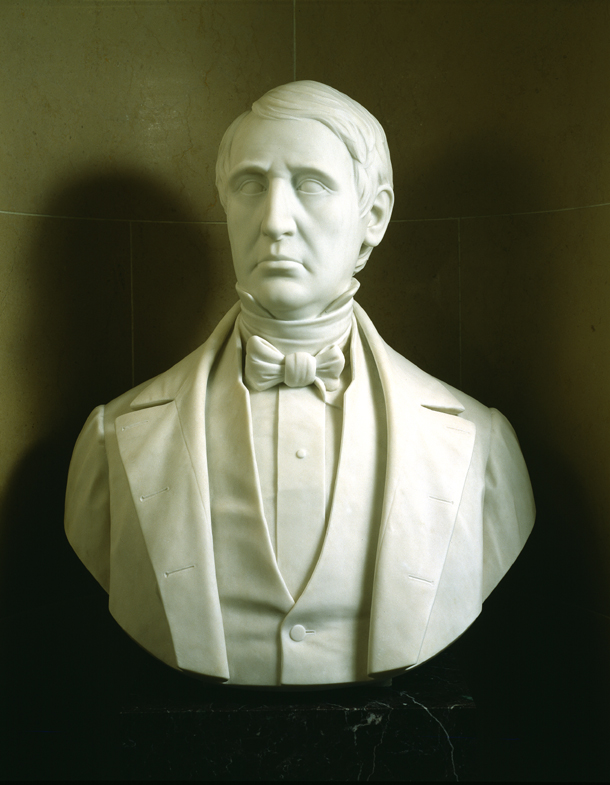
| Title | William R. King |
| Artist/Maker | William C. McCauslen ( 1860 - 1929 ) |
| Date | 1896 |
| Medium | Marble |
| Dimensions | h. 33.5 x w. 26.63 x d. 15.75 in. (h. 85.1 x w. 67.6 x d. 40 cm) |
| Credit Line | U.S. Senate Collection |
| Accession Number | 22.00013.000 |
Little is known about the career of artist William C. McCauslen. Born in Steubenville, Ohio, he appears to have received some formal training as a painter but was self-taught as a sculptor. It is unknown how McCauslen came to the attention of the Joint Committee on the Library to execute the marble bust of William R. King for the Senate’s Vice Presidential Bust Collection. In 1896 McCauslen’s model was approved by the committee, and the finished work was placed in the Capitol that same year. McCauslen also completed marble busts of John Tyler and Andrew Johnson for the vice presidential series.
An elected official and a diplomat, William Rufus de Vane King was a U.S. representative from North Carolina, a U.S. senator from Alabama, and 13th vice president of the United States. He was born in Sampson County, North Carolina, and practiced law before winning a seat as a Democrat in the U.S. House of Representatives. He served in the House from 1811 to 1816 and then resigned to hold diplomatic posts abroad in Naples and St. Petersburg.
In 1818 King settled in Alabama, where he became active in the movement for statehood and was a delegate to the state-organizing convention. He was elected to the U.S. Senate after statehood was achieved. He served from 1819 to 1844, when he resigned to become minister to France. Returning to the Senate in 1848 to fill a vacant seat, he remained in office until 1852. While in the Senate, King held the office of president pro tempore for seven years.
He was elected vice president under Franklin Pierce in 1852, though tuberculosis and failing health dampened the victory. King traveled to Havana, Cuba, in hopes of regaining his health, but he soon realized he would not be well enough to return to Washington in time for the inauguration. By special action of Congress, the oath of office was administered to King in Cuba. He sailed for home in April 1853 and died the day he arrived in Alabama, having served less than two months as vice president.